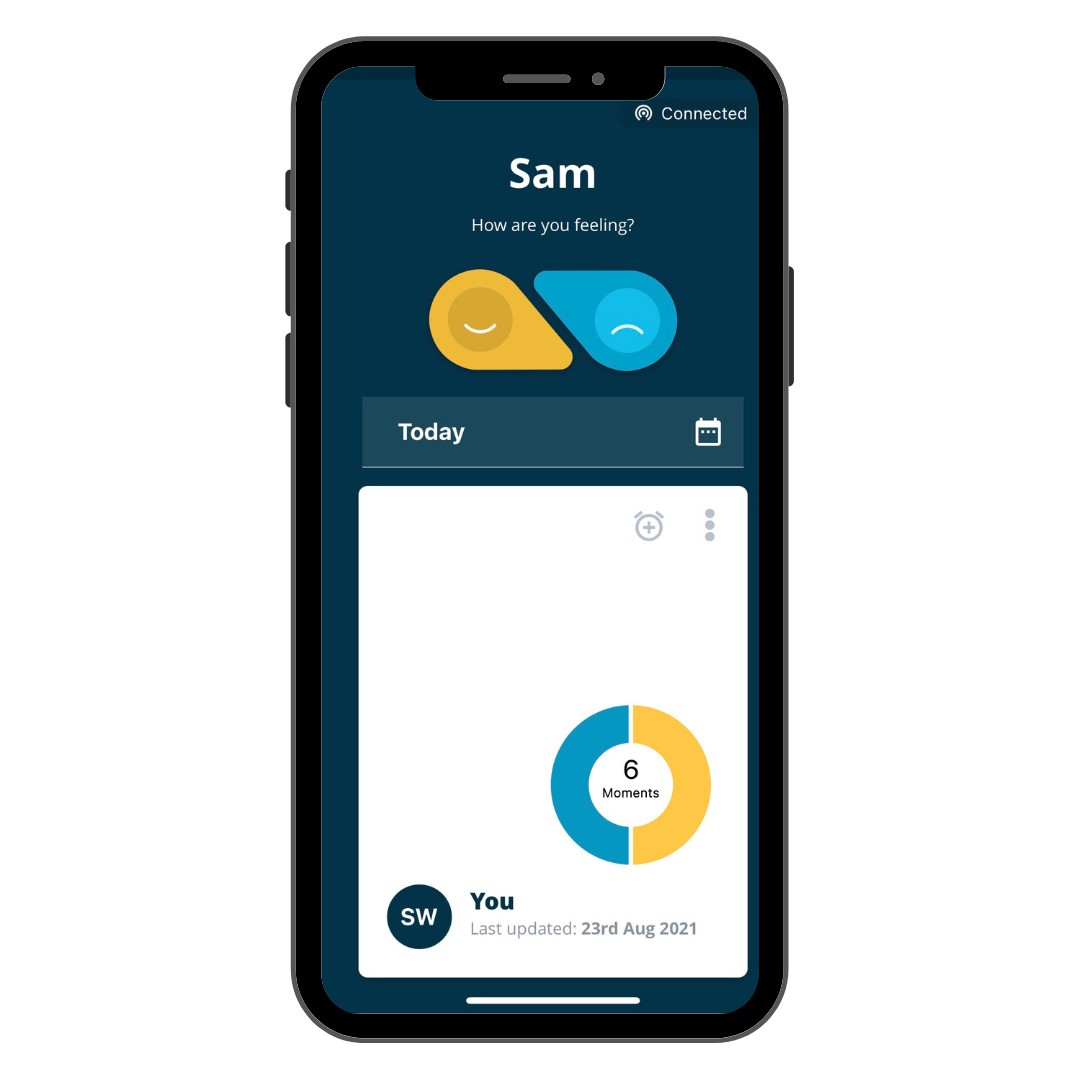Latest research from the Office of National Statistics, states 7.2 per cent (approximately 3.7 million) of UK adults reported they felt lonely ‘often’ or ‘always’ between October 2020 and February 2021 – an increase of 2.2 per cent compared to the previous year. However, experts at leading health tech company Moodbeam, believe tech could be the key to combatting loneliness, making people feel more connected to society and improving overall wellbeing.
Although most people will experience loneliness at some point in their lives, according to research from the National Institute For Health and Care Research, up to one in five cases of depression among over-50s could be prevented by reducing loneliness. However, studies from the Campaign To End Loneliness state that loneliness among the younger community is currently much higher than within the older community, with 22 per cent of students reporting feeling lonely in April 2022, compared to 6 per cent of adults surveyed in the same month.
Previously available solely as a wearable device, Moodbeam’s new app can be downloaded for just 89p from Apple’s app store or Google Play. It allows users to log their highs and lows throughout the day. They can then add journal entries and visualise their moods in a diarised format, before sharing their mood profile and data with trusted friends and loved ones in real time.
By touching the yellow icon to input a happy report and a blue icon for an unhappy one, at different points throughout the day, users can easily monitor their emotional wellbeing. And, by sharing this data with loved ones or physicians, Moodbeam co-founder and director, Christina Colmer McHugh, believes the app could be a valuable tool for spotting early signs of loneliness and poor mental health, while connecting friends and family even when far away.

Christina said: “The pandemic has been responsible for an increase in a whole range of mental health and wellbeing issues, including social anxiety, social nervousness and feelings of isolation. And, even with lockdown measures now lifted and life now, for the most part, back to normal, loneliness remains a major issue for many.
“Since we launched Moodbeam, we’ve evolved and accelerated our offering to make it as easy as possible for people to become more attuned with their mental health and wellbeing.
“When experiencing loneliness, it can be difficult to feel like you can reach out to others to tell them how you’re feeling as many people don’t want to feel like they’re troubling friends or loved ones. However, with our new app, users can log their mood throughout the day with their smartphone and automatically share this data with the people closest to them. This creates an almost passive route for people to let their loved ones know how they are feeling, so they can spot any trends and make informed decisions about whether to check in.
“It’s never been more important for the whole world to start a journey of self-awareness while opening discussions about mental health.”
More from News
- Driverless Vehicles: Why Is Tesla Under Investigation?
- Professional AI Use: Is There A Double Standard In Who Uses It?
- Experts Share: How Can The UK Maintain Its Position As A Top Tech Hub Globally?
- Amazon’s Same-Day And Next-Day Delivery Now In 4000 More Areas
- Valutico Acquires AI Innovator Paraloq Analytics to Revolutionise Private Company Analysis
- How Do UK Consumers Spend Their Disposable Income?
- Spain Tops The List As Most Productive European Country
- Industry Leaders Share Their Thoughts On The Recent Interest Rate Hold
Loneliness has become a major public health issue in recent years and has been associated with contributing to a number of mental and physical health risks. These include depression, increased stress levels, decreased memory and learning ability, Alzheimer’s disease progression, alcohol and drug abuse, and suicide.
Explaining what action people can take to support those that may be experiencing loneliness, Dr Phil Parker, leading health and happiness expert, said:
“A substantial body of evidence demonstrates that social isolation and loneliness presents a major risk for premature mortality, comparable to other risk factors such as high blood pressure, smoking, or obesity. Although the elderly are often affected by loneliness, studies have found that 16- to 24-year-olds experience loneliness more often and more intensely than any other age group.
“If people are experiencing loneliness, it’s important to take active steps to connect with others. Even doing it via social media has been shown to increase the bond hormone oxytocin, which prevents many of the side effects of stress.
“And, for those who may not be experiencing loneliness themselves, make sure to spend time checking in with others, connecting and if possible, meeting them face-to-face.”



